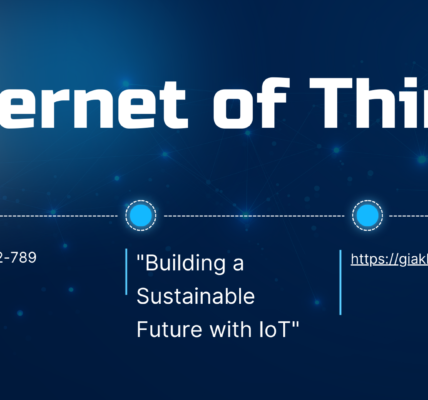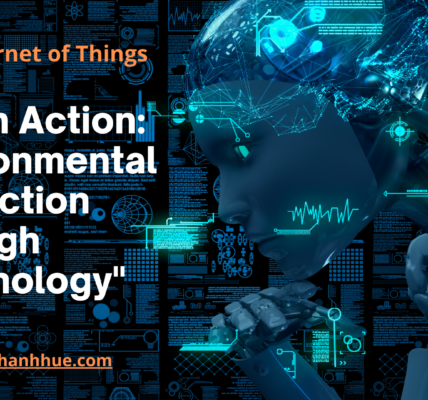In the contemporary era, the Internet of Things (IoT) has emerged as a revolutionary force, driving efficiencies and innovations across various sectors. Among these, its impact on sustainable energy solutions stands out, offering a promising pathway to a greener, more efficient future. This article explores how IoT is powering up sustainable energy solutions, contributing to environmental conservation, and promoting energy efficiency on a global scale.
Firstly, IoT’s role in enhancing energy efficiency cannot be overstated. By integrating sensors and intelligent analytics, IoT devices can monitor and manage energy usage in real-time. This capability is crucial in identifying wasteful practices and optimizing energy consumption patterns. For instance, smart thermostats and lighting systems adjust according to occupancy and ambient conditions, significantly reducing unnecessary energy use.
Moreover, IoT is pivotal in advancing renewable energy integration. Solar and wind energy systems, equipped with IoT sensors, can predict weather conditions and adjust their operations accordingly. This not only maximizes the generation of renewable energy but also ensures its reliability and stability within the power grid. Consequently, IoT facilitates a smoother transition from fossil fuels to renewable sources, a critical step towards mitigating climate change.
IoT also plays a vital role in grid management and energy distribution. Smart grids, powered by IoT technology, enable better demand response, load balancing, and fault detection. This leads to a more resilient and efficient energy infrastructure, capable of handling the increasing complexities and demands of modern energy needs. Additionally, IoT-driven solutions promote consumer engagement and participation in energy conservation, through platforms that provide real-time feedback and control over energy consumption.
The potential of IoT extends beyond just energy efficiency and grid management; it also includes the enhancement of energy storage systems. As renewable energy sources become increasingly prevalent, the need for effective storage solutions becomes crucial. IoT technology aids in monitoring and managing these storage systems, ensuring they operate at optimal efficiency and reliability. This not only helps in stabilizing the grid during fluctuations in energy supply but also maximizes the utilization of renewable energy.
Additionally, IoT contributes to the development of smarter cities and communities. Integrated IoT systems can manage and optimize energy use across entire buildings, neighborhoods, and cities, leading to substantial energy savings and reduced carbon footprints. These systems can control everything from street lighting to public transport, making urban living more sustainable and efficient.
Furthermore, IoT opens up new avenues for consumer empowerment and energy democratization. With access to real-time data on energy usage and generation, consumers can make informed decisions about their energy consumption, invest in renewable energy systems, and even sell back excess energy to the grid. This not only encourages responsible energy use but also promotes a more dynamic and participatory energy market.
However, while the benefits of IoT in sustainable energy are immense, it also brings challenges such as data security and privacy concerns. As more devices become connected, the risk of cyber-attacks and data breaches increases. Therefore, alongside the adoption of IoT in energy solutions, it’s crucial to invest in robust cybersecurity measures and ensure the protection of sensitive data.
IoT stands at the forefront of revolutionizing the energy sector. From enhancing energy efficiency and storage to enabling smarter cities and empowering consumers, IoT’s potential to drive sustainable energy solutions is vast and multifaceted. As we navigate towards a more sustainable future, embracing the power of IoT in energy practices is imperative. By doing so, we can unlock a new era of energy innovation, characterized by efficiency, sustainability, and resilience. The journey toward a sustainable energy future is complex and challenging, but with IoT, we have a powerful ally to help us achieve our environmental and energy goals.


